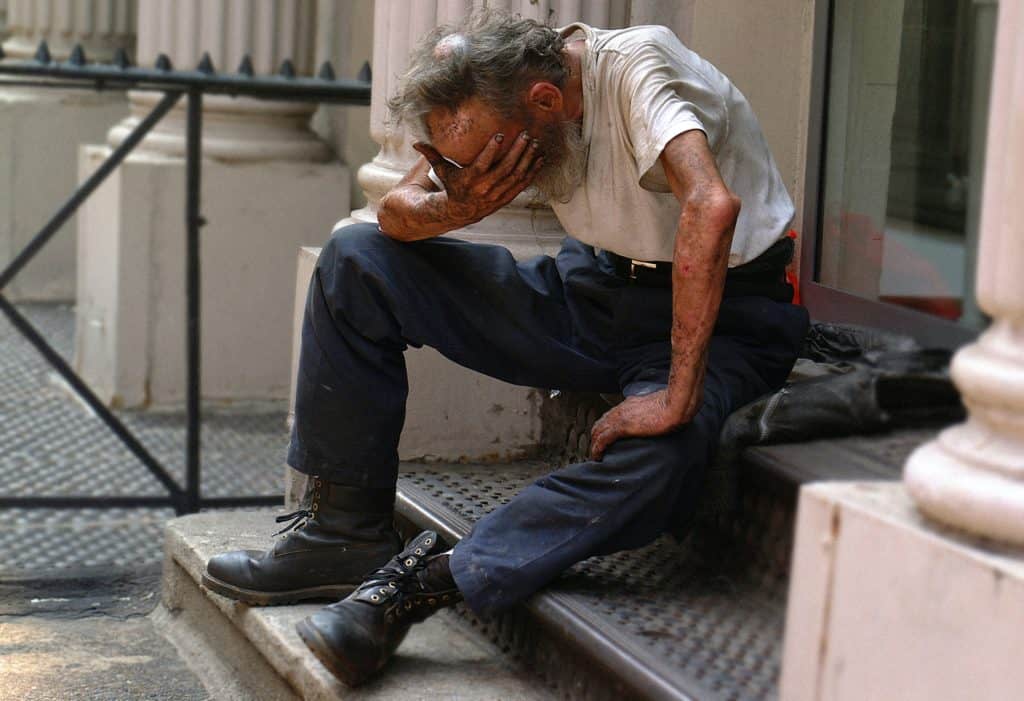In 2019, The U.S. Department of Housing and Urban Development (HUD) estimated that 567,715 people were living in streets and shelters across the country. This was before the pandemic hit. Those experiencing homelessness are especially vulnerable to getting sick due to previous health conditions and lack of access to general wellness care. A report from the Homeless Research Institute explored how “crowded shelters and encampments, sleeping outdoors, and housing instability make it difficult to engage in activities that can help ward off illnesses.” Emergency shelters and community organizations who regularly serve these communities needed to adjust to the new public health demands.
Shelters have faced unfortunate new challenges in their work to serve those experiencing homelessness. Shelters are designed to be efficient and serve large groups of people at a time, not accommodate for social distancing. In March, new health concerns required spaces not traditionally equipped for distancing to reconsider the use of their spaces and implement additional sanitation, all whilst a shortage in resources.
These challenges were faced head on by places like St. Matthews House in Naples, Florida, where they had just remodeled spaces prior to the pandemic to be 72-hour quarantine rooms for residents of the shelter. This coincidence in their reconstruction served them well and allowed them a head start in response to the public health crisis. Other places implemented daily temperature checks, limited capacity in certain rooms and mandatory masks. Many cities resorted to closing emergency shelters and moving populations of those experiencing homelessness into hotel rooms while they continued to work out longer term plans to insure the safety of shelters. The CDC has released guidelines for how community service providers should adjust and respond to the public health crisis, but following the guide requires significant adjustments that take time, and that has put many experiencing homelessness at higher risk of illness.
In May 2020, Shelly Nortz, Deputy Executive Director for Policy Coalition for the Homeless, presented in front of New York state legislature The Disparate Impact of COVID-19 on Homeless People in New York City. She presented information on how the homeless population in NYC is at higher risk of contracting COVID-19 due to lack of access to safe and private spaces. She also advocated for assistance on behalf of Black and Hispanic/Latinx New Yorkers who are not only disproportionately affected by homelessness but also disproportionately affected by COVID-19 due to social determinants of health.
The CARES Act distributed $12 billion in funding for HUD programs, which put money into many struggling areas of the country. However, now the pandemic is persisting longer, it is time for more assistance, which could be an opportunity to address long standing housing problems in the country. The HEROES Act – the hopeful second stimulus during the pandemic – could provide $11.5 billion additional assistance to protect renters and homeowners from evictions and foreclosures, as well as allot specific funds to prevent and respond to outbreaks among people experiencing homelessness.
Homeowners are also at risk like never before. One of the quickest ways for a person to build wealth is through homeownership. That wealth gives more opportunity to be resilient in the face of hard economic times. In May 2020, the U.S. unemployment rate was at 13.3% , meaning many Americans are still facing economic challenges due to the COVID-19 pandemic. Lack of income affects renters and homeowners alike, putting many at risk to be unable to make rent or mortgage payments. Thanks to government assistance from the CARES Act, many evictions have been paused and stimulus distributed. However, this temporary fix may be prolonging an inevitable increase in displacement and contribute to high numbers of those needing emergency shelters and housing assistance.
Sarah Oros is NCRC’s program coordinator for fair lending and fair housing.
Photo by Ben Hershey on Unsplash



